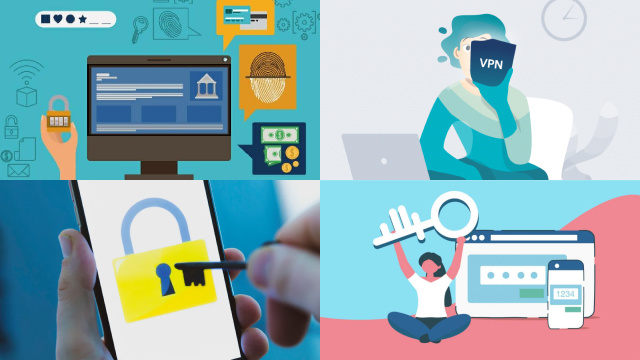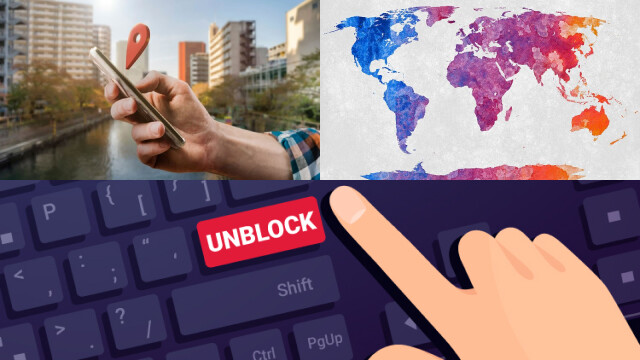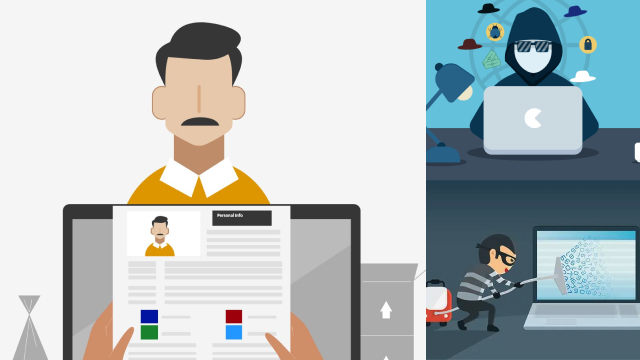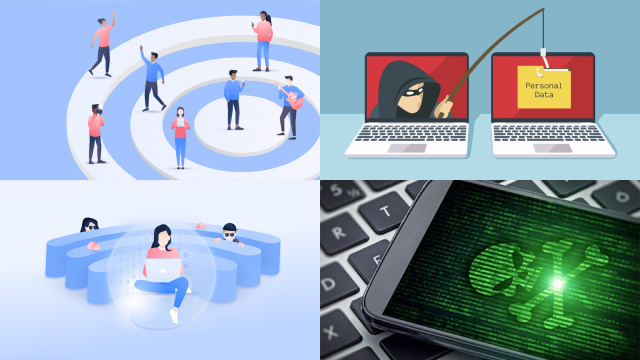Protect Your Online Privacy
In today’s digital age, it’s essential to protect your online privacy. Many websites, apps, and online services track your online activities and gather personal data without your knowledge or consent. This data can be used for targeted advertising, sold to third-party companies, or even used for identity theft and fraud.
A VPN can help protect your online privacy by encrypting your internet connection and hiding your online activities from prying eyes. By using a VPN, you can prevent your ISP and other third parties from tracking your online activities, browsing history, and other personal information. Additionally, a VPN allows you to access the internet anonymously, which means you can browse the web without revealing your true identity or location.

Overall, using a VPN is a crucial step towards protecting your online privacy and maintaining control over your personal data. With a VPN, you can browse the internet with peace of mind, knowing that your online activities are kept private and secure.
Secure Your Internet Connection
In today’s digital age, securing your internet connection is essential to protect yourself from cyber threats such as hackers and identity theft. A VPN, or virtual private network, provides a secure and encrypted connection between your device and the internet, making it virtually impossible for anyone to intercept your data.
When you use a VPN, all the data transmitted between your device and the VPN server is encrypted, meaning it is scrambled and cannot be read by anyone without the decryption key. This ensures that your online activity remains private and secure, even when using public Wi-Fi hotspots or other unsecured networks.
A VPN also helps to prevent internet service providers, governments, and other third parties from monitoring your online activity. This ensures that your browsing history, search queries, and personal information remain private and protected.
By using a VPN to secure your internet connection, you can enjoy peace of mind knowing that your online activity is safe and private, and your sensitive information is protected from prying eyes.
Hide Your IP Address
When you connect to the internet, your device is assigned a unique IP address that can be used to track your online activities. However, when you use a VPN, your IP address is replaced with the VPN server’s IP address, making it difficult for anyone to track your online activities back to you. This provides an additional layer of privacy and anonymity, which is essential for many internet users.
By hiding your IP address, you can avoid targeted advertising, prevent websites from collecting your personal information, and protect yourself from cyber attacks. This is particularly important when using public Wi-Fi networks, which are often unsecured and vulnerable to attacks. With a VPN, you can ensure that your online activities remain private and secure, even when using public Wi-Fi.
In addition to providing anonymity, hiding your IP address can also allow you to access content that is restricted in your region. By connecting to a VPN server in another country, you can access geo-restricted content and websites that may be blocked in your region.
Access Geo-Restricted Content
A VPN can provide access to geo-restricted content by allowing you to connect to a server in a different country where the content is available. This means that you can access websites, streaming services, and other online content that may not be available in your own country.
For example, if you’re traveling abroad and want to watch a show or movie that’s only available in your home country, you can connect to a VPN server in your home country and access the content as if you were there. Similarly, if you live in a country where certain websites or services are blocked, you can use a VPN to connect to a server in a different country where those sites are available.

However, it’s important to note that accessing geo-restricted content may violate the terms of service of some websites or services, so use caution and make sure you’re not breaking any rules. Additionally, some streaming services actively block VPN traffic, so not all VPNs may be able to bypass these restrictions.
Bypass Internet Censorship
In many parts of the world, internet censorship is a harsh reality that limits people’s access to information and freedom of expression. Fortunately, a VPN can help bypass internet censorship by masking your IP address and allowing you to access the internet as if you were in a different location.
Internet censorship is usually enforced by governments, Internet Service Providers (ISPs), or other organizations that monitor internet traffic and block websites or services deemed inappropriate or undesirable. This can include social media sites, news websites, streaming services, and more.
By using a VPN, your internet traffic is encrypted and routed through a remote server, which makes it difficult for anyone to track your online activities or censor your access to information. Additionally, many VPN providers offer advanced features such as obfuscation and stealth mode, which can help disguise your VPN traffic and make it even harder to detect.
Overall, if you live in a country where internet censorship is a concern, a VPN is an essential tool that can help you bypass restrictions and access the content you need.
Protect Your Data from Hackers and Cybercriminals
Using a VPN can be an effective way to protect your data and sensitive information from hackers and cybercriminals. When you connect to the internet without a VPN, your online activity and data are exposed to potential threats. Hackers and cybercriminals can intercept your internet traffic and steal your personal information, such as login credentials, credit card numbers, and other sensitive data.
A VPN encrypts your internet connection, making it more difficult for hackers to intercept and read your online traffic. The encryption process scrambles your data and renders it unreadable to anyone who doesn’t have the key to decrypt it. This means that your sensitive information remains secure and protected, even if it’s intercepted by a hacker.

In addition to encryption, VPNs also offer features such as malware protection and ad-blocking, which can further protect your data from online threats. By using a VPN, you can have peace of mind knowing that your sensitive information is safe and secure from cybercriminals.
Improve Your Online Security
In today’s digital age, cyber attacks are becoming increasingly common, and online privacy is becoming a growing concern. This is where a VPN can help. A VPN not only allows you to access geo-restricted content and bypass internet censorship, but it also improves your online security. By encrypting your internet connection, a VPN protects your data from hackers and cybercriminals who may be looking to steal your personal information or intercept your online communications.
In addition, a VPN masks your IP address, making it more difficult for third parties to track your online activities. This is particularly important when using public Wi-Fi networks, which are often unsecured and vulnerable to attacks. With a VPN, you can have peace of mind when browsing the internet and conducting sensitive transactions online, knowing that your information is protected.
Overall, using a VPN is a simple and effective way to improve your online security and protect your privacy in the digital age.
Use Public Wi-Fi Safely
Using public Wi-Fi can be a risky endeavor as it can expose your online activities to malicious actors who may be snooping on the network. However, a VPN can help mitigate these risks and allow you to use public Wi-Fi safely. When you connect to a VPN, your internet traffic is encrypted and routed through a secure server, effectively shielding your online activities from prying eyes.
Additionally, a VPN also masks your IP address, making it difficult for third parties to track your online movements. This is particularly useful when accessing sensitive information such as bank accounts or work emails while connected to public Wi-Fi.

Furthermore, some VPNs have additional features such as malware protection and ad-blocking, which add an extra layer of security to your online experience. With a VPN, you can enjoy the convenience of public Wi-Fi without compromising your online privacy and security.